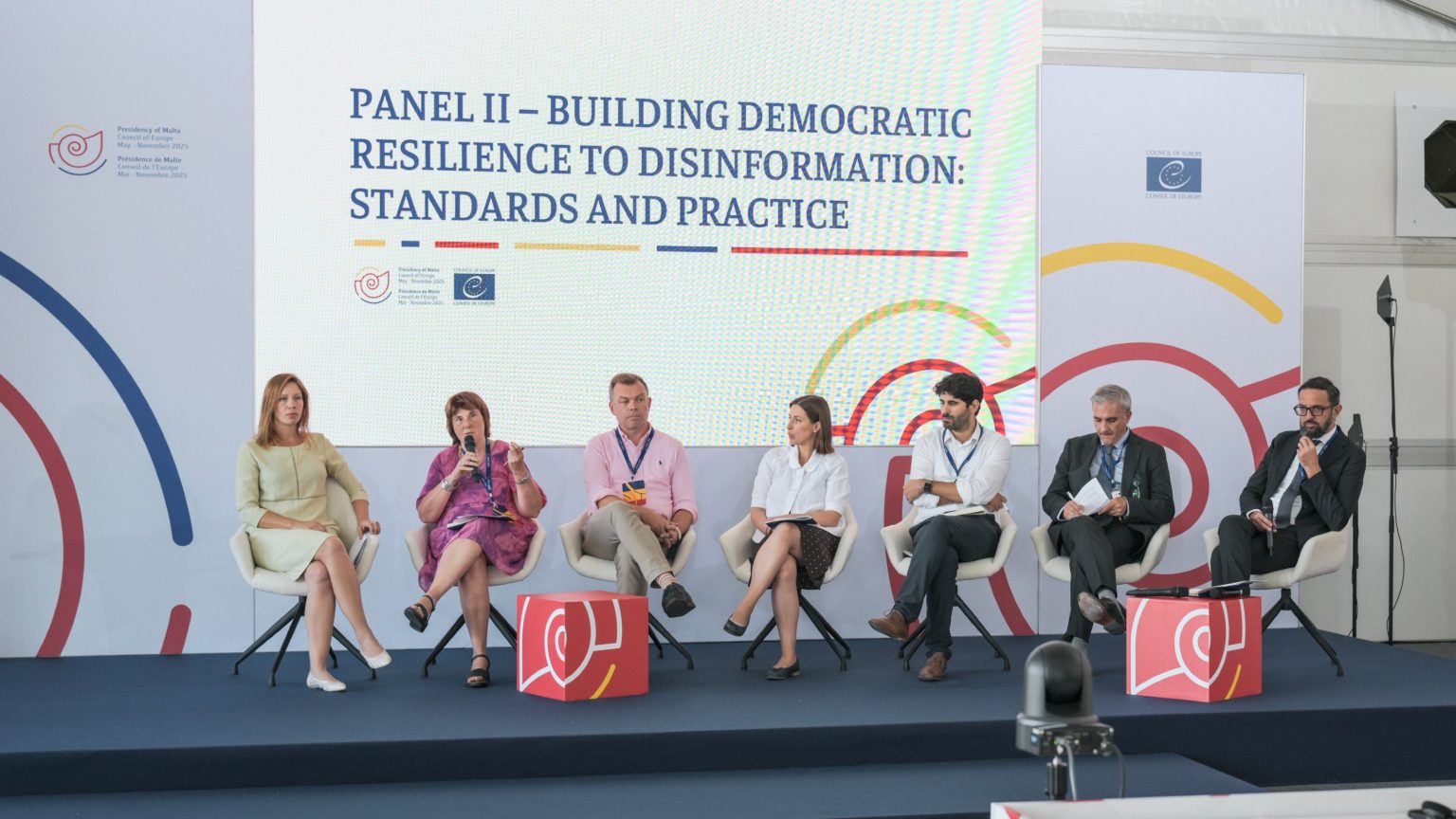Listen to the article
In a significant push against the rising tide of disinformation in Europe, the Council of Europe and Malta’s Ministry for Foreign Affairs and Tourism recently convened a high-profile conference addressing one of democracy’s most pressing challenges. The event, titled “Building Democratic Resilience to Disinformation,” brought together a diverse coalition of stakeholders under Malta’s Presidency of the Committee of Ministers.
The conference assembled policymakers, regulators, civil society representatives, media professionals, academics, and technology sector leaders to examine how disinformation undermines democratic institutions and erodes public trust. Discussions centered on protecting media freedom, enhancing literacy, strengthening education systems, engaging youth, and leveraging cultural initiatives to combat false information.
This gathering represents a crucial element in the Council of Europe’s broader agenda for democratic renewal, supporting Secretary General Alain Berset’s vision for a New Democratic Pact for Europe. The initiative aims to reinvigorate dialogue, foster collaboration, and reaffirm commitment to democratic values across the continent at a time when information integrity faces unprecedented challenges.
Ian Borg, Malta’s Deputy Prime Minister and Minister of Foreign Affairs and Tourism, delivered powerful opening remarks, characterizing disinformation as “a deliberate attack on the information ecosystem that sustains free societies.” Borg emphasized the global nature of this threat, noting that it has been “supercharged by the internet and Artificial Intelligence,” making it impossible for nations to effectively combat it in isolation.
The minister advocated for multilateral approaches grounded in cooperation and knowledge sharing. His proposed strategy included empowering individuals through media literacy and critical thinking skills while deepening partnerships with digital platforms to address harmful content more effectively.
Deputy Secretary General Bjørn Berge delivered a keynote address highlighting the need for knowledge building, security enhancement, and developing resistance mechanisms against disinformation. “We can no more stop the tide of disinformation than we can stop the tide itself,” Berge noted, adding that “fake news goes viral far more quickly than any virus ever did.” Despite this sobering assessment, he emphasized that societies can “counter lies with facts, with law, and with education.”
The conference featured contributions from other prominent figures including Michael O’Flaherty, the Council of Europe’s Commissioner for Human Rights, and Jan Braathu, the OSCE Representative on Freedom of Media. Matjaž Gruden, Director for Democracy, stressed that providing societies with quality, trustworthy information remains fundamental, while noting that protecting democracy extends beyond regulatory frameworks and fact-checking initiatives to include rebuilding trust and reinforcing shared societal values.
Maja Zarić, who chairs the Steering Committee on Media and Information Society (CDMSI), joined other panelists in highlighting how disinformation systematically undermines trust in democratic institutions, electoral processes, media organizations, and fundamental rights. She detailed the extensive work undertaken by CDMSI to strengthen societal resistance to disinformation campaigns.
The conference reached several important conclusions, chief among them that robust democratic institutions, including strong rule of law frameworks and protected civic freedoms, offer the most effective defense against disinformation. Participants agreed on the necessity of a coordinated, whole-of-society approach involving multiple stakeholders from government to grassroots organizations. They also emphasized the importance of free and pluralistic media environments, alongside educational and cultural policies that cultivate critical thinking skills and diverse perspectives.
Christopher Cutajar, Permanent Secretary at Malta’s Ministry for Foreign Affairs and Tourism, delivered concluding remarks positioning democratic resilience to disinformation as a core security priority. He outlined dual requirements: protecting information spaces while simultaneously investing in citizens’ skills—with particular emphasis on youth engagement—to strengthen democratic culture. Cutajar highlighted the Council of Europe’s unique strategic position to lead this effort through its established standards, independence, and ability to unite governmental and civil society actors.
The conference also marked the launch of RESIST: Strengthening Societal Resilience to Disinformation in Europe, a new Council of Europe project funded by EEA and Norway Grants. This initiative aims to help European states bolster their resilience against disinformation while empowering citizens through enhanced media and information literacy programs.
Verify This Yourself
Use these professional tools to fact-check and investigate claims independently
Reverse Image Search
Check if this image has been used elsewhere or in different contexts
Ask Our AI About This Claim
Get instant answers with web-powered AI analysis
Related Fact-Checks
See what other fact-checkers have said about similar claims
Want More Verification Tools?
Access our full suite of professional disinformation monitoring and investigation tools



